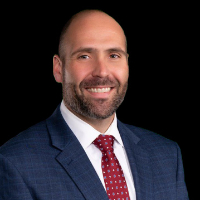Cottageville Felony Lawyer, South Carolina
Sponsored Law Firm
-
 x
x

Click For More Info:
-
Clekis Law Firm P.A.
171 Church St, Charleston, SC 29401» view mapCriminal Defense Law Clekis Cares. We Listen to You.
Clekis Law Firm has been representing clients for over three decades.
800-725-6591
Not enough matches for Cottageville Felony lawyer.
Below are all Cottageville Criminal lawyers.
Chad D. Shelton
Criminal, DUI-DWI, Felony
Chad was born and raised in St. Charles, Missouri just outside of St. Louis. He attended undergrad at Valparaiso University in Northwest Indiana and ... (more)
Margie Bright Matthews
Government, Employment, Criminal, Personal Injury, Accident & Injury
Status: In Good Standing
David A. Blevins
Criminal, Divorce & Family Law, DUI-DWI, Mediation, Traffic
Status: In Good Standing Licensed: 8 Years
John R. Hetrick
Social Security -- Disability, Workers' Compensation, Criminal, Personal Injury
Status: In Good Standing Licensed: 47 Years
Tameaka A. Legette
Lawsuit & Dispute, Criminal, Civil & Human Rights, Accident & Injury
Status: In Good Standing
Michelle Jennifer Weil
Real Estate, Child Custody, Criminal, Consumer Protection
Status: In Good Standing
 Nicholas Clekis Charleston, SC
Nicholas Clekis Charleston, SC

